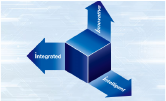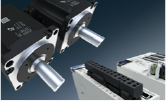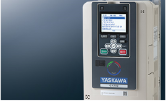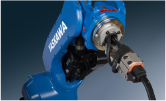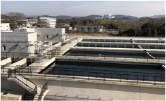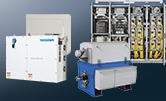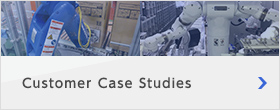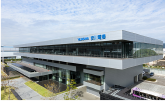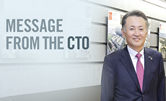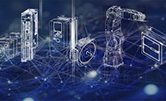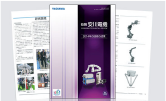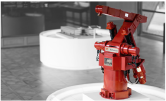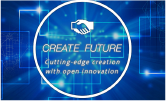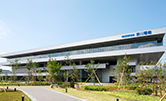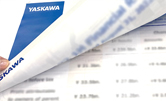Driving motors for more than 100 years
By operating our business with world-class technologies and products, we contribute to the development of the industry and resolution of the social agenda.
Yaskawa was founded in 1915 in the city of Kita-Kyushu, Fukuoka Prefecture, and began the build-to-order production of electrical products for coal mining. Since then, we have defined “motors and their applications” as our business domain and have developed technologies and products that support social infrastructure, including those of steel plants and cement applications. Since the 1960s, the company has pioneered the concept of mechatronics, which controls electrical components electronically, and has produced a number of products, including “servo motors, which are great at stopping”, “AC Drives / Inverters which are great at driving motors efficiently”, and “industrial robots which incorporate our own motors and boast the highest operating accuracy in the industry” supporting the cutting-edge industries of the time.
Currently, the company contributes to the advancement of industries such as automobiles, electric vehicles (EVs), semiconductors, electronic components, next-generation telecommunications, food manufacturing, agriculture, and biomedical, as well as social infrastructure such as elevators, air conditioning, oil and gas, pumps, photovoltaic generation, and logistics. This can be achieved through businesses such as the motion control business segment of AC servo motors and controllers, AC Drives / Inverters, robotics, and systems engineering. Additionally, we proposed a new solution concept called i3-Mechatronics in 2017, which is an evolution from mechatronics to achieve sustainable productivity improvements for customers by utilizing digital data in mechatronics products. We aim to achieve sustainable corporate growth while working closely with customers to resolve business challenges.
 Region
Region



 Principles & vision
Principles & vision
 Procurement
Procurement
 Sustainability for the Yaskawa Group
Sustainability for the Yaskawa Group
 Customer satisfaction
Customer satisfaction
 Supply chain
Supply chain
 Social contribution
Social contribution
 Compliance & risk management
Compliance & risk management



